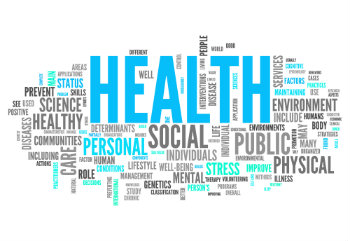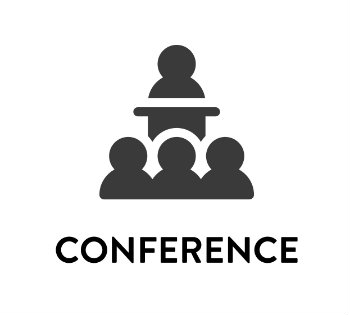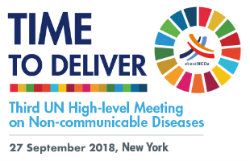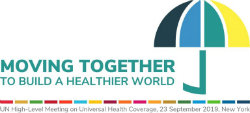Global Mental Health Task Force
Since 2016, the Global Alliance has sponsored a task force to raise awareness of global mental health concerns. Many of those organizing the task force had experience working in global settings, often with a goal of increasing access to mental health services and developing quality care. The founding members of the task force were concerned about a variety of issues including:
What have we accomplished?To date, the Global Mental Health Task Force has been engaged in raising awareness of the behavioral health needs of individuals globally, advocacy to strengthen policy and practice, and education of policy makers and governmental leaders. We have accomplished our objectives through symposia, resolutions, publications, global coalitions, and participation in United Nations meetings. In 2021, the task force developed Guidelines for Conducting Global Research: Global Alliance Perspective. SymposiaBuilding Capacity to Address Mental Illness and Emotional Distress in Low-Resource Settings and Among Refugee Populations – presented at Society for Community Research and Action Conference, Ottawa, Canada, June 2017 This symposium discussed approaches to addressing major challenges in fulfilling the WHO Mental Health Action Plan in low-resource countries. Specific papers discussed:
Challenges and Opportunities in Promoting Global Mental Health Equity – presented at Coming Together for Action Conference 2018, Denver, Colorado, October 2018 The Sustainable Development Goals (SDGs) have brought increased recognition of individual and community mental health and well-being as a critical global health priority. Yet, communities, governing bodies, and providers continue to be challenged by limited resources, stigmatizing policies, and a lack of understanding of behavioral health. This roundtable briefly highlights current challenges and defines opportunities to promote and sustain mental health equity on a global scale. Global Mental Health: Meeting the Challenges from the Lancet Report - presented at Society for Community Action and Research Conference, Chicago, Illinois, June 2019
The Lancet Commission on global mental health and sustainable development (October 2018) identified five leading challenges for global mental health: (1) integrate delivery of mental health services into routine primary health care; (2) reduce the cost and improve the supply of effective psychotropic drugs; (3) train health professionals in low-income and middle-income countries to provide evidence-based care for children with mental, neurological, and substance use disorders; (4) provide adequate community-based care and rehabilitation for people with chronic mental illness; and (5) strengthen the mental health component in the training of all health-care professionals to create an equitable distribution of mental health providers.
This roundtable addressed strategies for “reframing mental health” in order to reduce the treatment gap and the global burden of mental and substance use disorders by concurrently addressing the prevention and quality gaps, and extending the scope of treatment to include social care. Key areas discussed included adoption of a staged approach to mental health problems, convergence of the findings of the social and biological determinants of mental health problems into a life course trajectory of neurodevelopmental processes, and advocacy for mental health as a fundamental human right.
ResolutionsThe prevalence of behavioral health (mental health and substance use) disorders globally combined with a lack of prevention efforts, quality treatment services, and a shortage of mental health specialists demands attention from Member States. Based on the international human rights guarantee of a right to health, the Task Force has spearheaded the drafting and adoption of resolutions calling on the global communities to address these critical issues: Resolution on Global Mental Health and Substance Use Disorders Global mental health efforts should include focus on preventing the conditions, such as poverty, social exclusion, and violence, that help to create vulnerability for people. Efforts should also include treatment for individuals with mental health and substance use disorders that is culturally appropriate, easily accessible, provided in the least restrictive environment, and that involves consumers, family members, and communities. Resolution in Support of the Sustainable Development Goals Recognizes the importance of addressing the Sustainable Development Goals (SDGs) in order to achieve mental health and well-being and the value of the SDGs in providing a framework for the global community in promoting the health of all, including behavioral health. Resolution on the Astana Declaration Regarding Primary Care Acknowledges the importance of the Astana Declaration (October 2018) and its focus on primary health care in achieving the right to health for all. Recognizes that "health" includes mental health and that the Astana Declaration is a prominent platform for raising awareness about the inclusion of behavioral health care in primary care. Resolution to Support the Lancet Commission on Global Mental Health and Sustainable Development Supports the findings of the Lancet Commission on Global Mental Health and Sustainable Development, as reported in the Lancet Report. Resolution on the Inclusion of Mental Health in Universal Health Coverage Calls upon Member States of the United Nations to reaffirm the WHO Mental Health Gap Action Program (mhGAP) with goals of scaling up mental health services in non-specialized health settings, reducing the mental health treatment gap, and enhancing the capacity of States to provide services that are available and adaptable to specific country and cultural contexts. PublicationsGlobal Mental Health: A Call to Action This commentary by the members off the Global Mental Health Task Force expands on their presentation at the 16th Biennial Conference of the Society for Community Research and Action, held in Ottawa, Ontario, Canada, June 21–24, 2017, "Building Capacity to Address Mental Illness and Emotional Distress in Low-Resource Settings and Among Refugee Populations." Global CoalitionsThe Global Mental Health Task Force is a member of the following global mental health coalitions: Civil Society Engagement Mechanism for UNC2030 (CSEM) The CSEM is a global civil society movement with approximately 500 member organizations in more than 75 Movement for Global Health (MGMH)
United Nations Activities
In 2005, the World Health Organization (WHO) declared that there is no health without mental health. The connection of physical and mental health is well-established. Poor physical health can lead to a greater risk of developing mental health problems. Similarly, poor mental health can negatively affect physical health, leading to an increased risk of some conditions. Despite the importance of good mental health to good physical health and vice versa, historically, mental health has been seriously neglected on a global level – regardless of the income level of the country.
Critical to the work of the Global Mental Health Task Force has been our efforts to integrate behavioral health concerns into the work of the U.N. The Global Alliance received special accreditation to participate in the following meetings. An application for ECOSOC (Economic and Social Council) status is pending.
Civil Society Hearing – July 5, 2018
The Global Alliance participated in the civil society hearing as part of the preparatory process for the HLM on the prevention and control of non-communicable disease in September 2018. The goal of the hearing was to learn about the key priorities of civil society, the private sector and other stakeholders to be presented to Member States at the HLM on NCDs. High Level Meeting (HLM) on NCDs – September 27, 2018 The HLM was convened to focus on the prevention and control of noncommunicable diseases (NCDs). The purpose of the meeting was to examine global and national progress in implementing measures to protect people from premature death due to heart and lung diseases, cancers and diabetes. During the meeting, participating heads of state committed their governments to 13 new steps to tackle noncommunicable diseases and to promote mental health and well-being as an important component of this strategy. In addition, the WHO's Thirteenth General Programme of Work 2019-2023 places a strong emphasis on reducing NCDs and promoting mental health. Investment in universal health coverage is at the core of national responses. Interactive Multi-stakeholder Hearing – April 29, 2019 In April 2019, stakeholders were convened to prepare for the HLM on Universal Health Coverage to be held in September 2019. The goal of the hearing was to learn the priorities of stakeholders. High Level Meeting (HLM) on Universal Health Coverage – September 23, 2019 The HLM is the first meeting on the topic of Universal Health Coverage (UHC). Primary health care is viewed as the foundation for UHC. Along with a focus on prevention and health promotion, primary health care can help to reduce inequities in health and manage chronic conditions, including mental health. The goal of the meeting is to secure political commitments from Heads of State and Government to prioritize and invest in Universal Health Coverage and ensure health for all. All countries have already committed through the Sustainable Development Goals to achieving good health and well-being (Goal #3) for all by the year 2030. In preparation for the HLM, the Global Mental Health Task Force ensured that its voice was heard through the following actions:
What are we working on?
|



 countries. CSEM is the civil society constituent of the International Health Partnership for UHC2030, which is a global movement to strengthen health systems for Universal Health Coverage as part of the Sustainable Development Goals. The goal of CSEM is to ensure that Universal Health Coverage policies are inclusive and equitable, and that systematic attention is given to the most marginalized and vulnerable populations so that no one is left behind.
countries. CSEM is the civil society constituent of the International Health Partnership for UHC2030, which is a global movement to strengthen health systems for Universal Health Coverage as part of the Sustainable Development Goals. The goal of CSEM is to ensure that Universal Health Coverage policies are inclusive and equitable, and that systematic attention is given to the most marginalized and vulnerable populations so that no one is left behind.  The MGMH is a network of individuals and organizations that aim to improve services for people living with mental health problems and psychosocial disabilities worldwide. MGMH is especially focused on low- and middle-income countries where effective services are often scarce. The Movement is guided by two fundamental principles: scientific evidence and human rights.
The MGMH is a network of individuals and organizations that aim to improve services for people living with mental health problems and psychosocial disabilities worldwide. MGMH is especially focused on low- and middle-income countries where effective services are often scarce. The Movement is guided by two fundamental principles: scientific evidence and human rights. 

